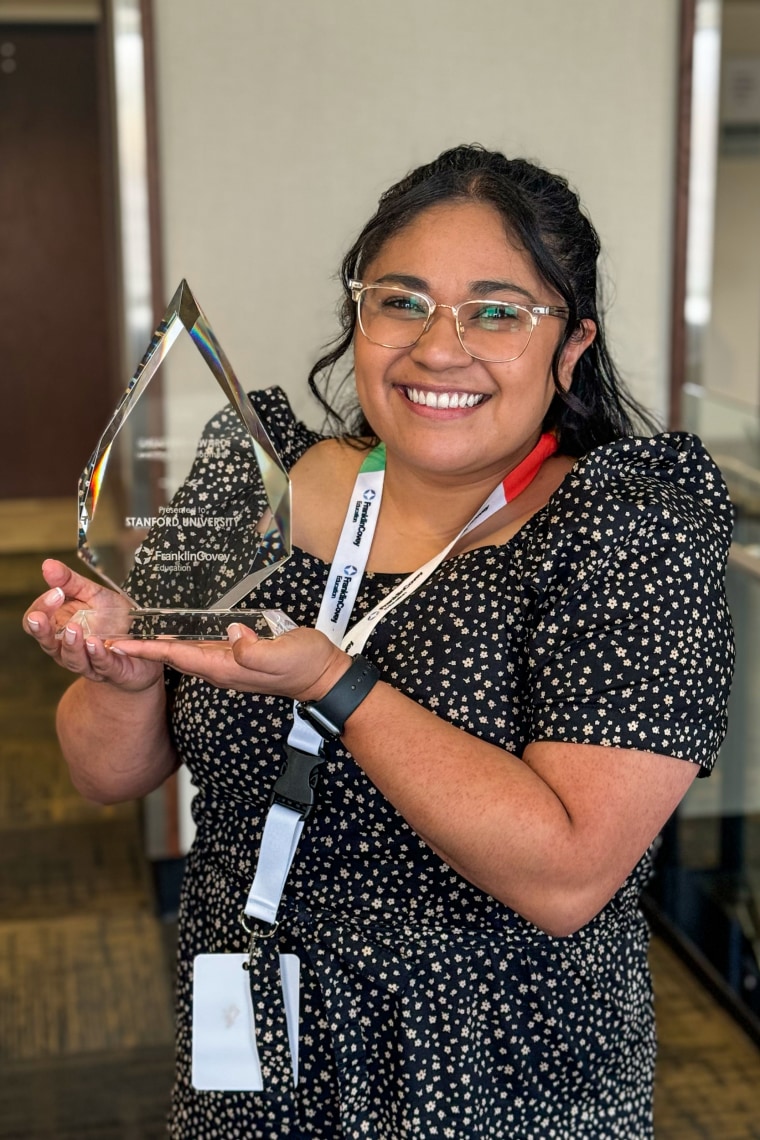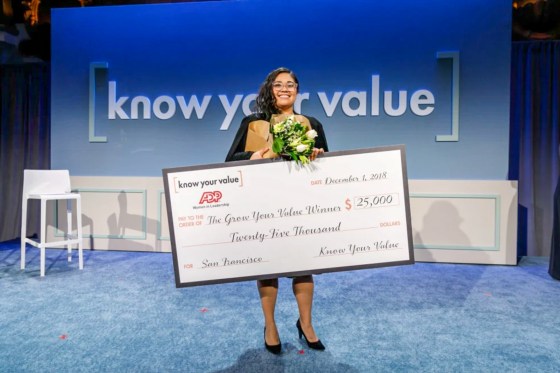In 2018, a colleague encouraged 25-year-old Danielle Oceguera to apply for Mika Brzezinski’s Know Your Value bonus competition — a contest that awards $25,000 to the woman who can best articulate her value in a 60-second pitch to the Morning Joe co-host. At the time, the master's degree student had a few doubts.
Oceguera, and Oakland native, had just transitioned into a coordinator role in the talent department at Stanford University, and was hesitant to put herself on stage, in front of a national audience.
“I would never describe myself as a confident person or someone that was willing to freely express their ideas or see value in their ideas,” she recently told Know Your Value.
Despite her initial lack of self-confidence, Oceguera was accepted as a contestant to Know Your Value's San Francisco event, and went on to win the live pitch competition and claim the cash prize. But she admitted the biggest reward wasn’t the money — it was the personal change that the contest sparked in her.
“When I went into the Know Your Value [conference], it was quite literally such a life-changing experience, because I was, I was just a different person,” she said. “I’m a friendly person, but I didn’t talk in meetings. I didn’t speak up to my supervisors. I didn’t want to engage in those types of conversations, or even higher-level thinking conversations, because I just thought I wasn’t smart enough, or I wasn’t articulate enough.”
Oceguera spoke about her difficulties asserting herself. “I’d be in meetings and I’d see a problem, or I’d see something that we should be anticipating, but I would literally not say anything at all, just because I didn’t think that it would add value.”
Growing up as a third-generation Latina, respecting authority and “keeping her head down” were cultural traits that subconsciously followed her into the workplace. “I was the youngest person in the office,” she recalled. “It doesn’t come natural for me to speak up … you don’t want to be contradictory, because you should be grateful for the job that you have.”
As one of the only Latinas in her workplace, Oceguera struggled to envision her own progression in leadership. “It just felt like something very far away, like I didn’t really see myself as a leader at Stanford,” she said. “And the Know Your Value experience gave me a lot of vocabulary around what my value really was.”
Learning her value helped her earn the $25,000 grand prize, which she used, in part, to pay for her education. “That whole experience was really pivotal for me,” Oceguera said.
She received body language training from behavior expert Janine Driver, confidence development skills from communications expert Chris Ulrich, and personal style tips Gravitas founder and CEO Lisa Sun. Oceguera and two other finalists were given a crash course to prepare for their live pitch competition.
Ultimately, the confidence she honed during that time led her to become a better advocate at work. “If anyone asked about the number one characteristic to describe me, it would probably have been ‘helpful,’” she said. “So my value was in helping others, but I didn’t do very much to help myself at the time. Post the Know Your Value [conference] … I learned a lot about myself.”
During her winning pitch — in front of Brzezinski and 600 conference attendees — Oceguera advocated for “the voiceless and underrepresented communities.”

Almost six years later, she has done just that. She now focuses on growing middle management at Stanford, helping staff climb the ladder, get promoted and gain key leadership skills. Oceguera was part of the university’s talent development team that spearheaded an important DEI initiative to create more inclusion and a sense of belonging for underrepresented communities at the elite institution.
Reflecting back on all the work she’s done to help university staff find their own voice and grow their value, she credits her 2018 experience the most. Now, when she talks to young people — especially from immigrant backgrounds like hers — she shares the same lessons she learned from the Know Your Value conference.
“I let them know that the reason they’re here is because they deserve to be here, and I encourage them to speak up in meetings [and not to be afraid],” she said. “What you have is important for us to learn, and your experience is important.”
